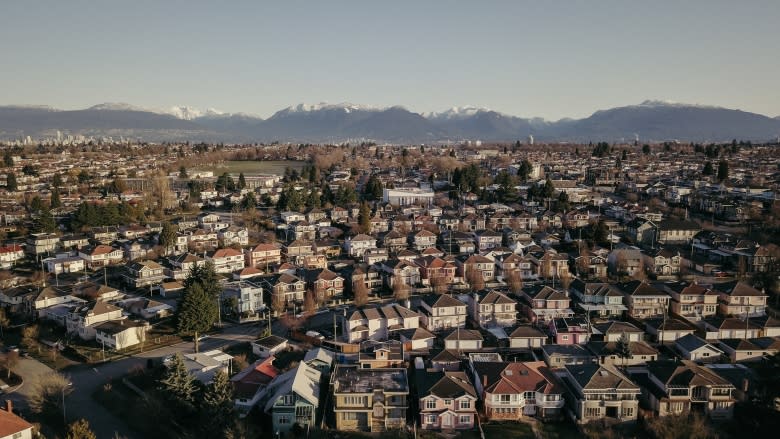B.C. real estate association reports nearly 30 per cent decrease in residential sales from last year
The British Columbia Real Estate Association says there's been a substantial decrease in the total number of residential unit sales in the province compared to last year.
The newest numbers from the association show there were 8,837 sales this month — a 28.7 per cent decrease from the same month last year.
The average sale price of a residential unit in British Columbia also decreased by 1.7 per cent to $739,783 compared to last year.
Residential units include individual, detached homes and apartments in a condominium.
Mortgage policy changes
Cameron Muir, the chief economist with the association, attributed the slowdown to mortgage policy changes.
In January, new rules brought in a so-called "stress test" for mortgage borrowers, where their finances are tested to make sure they would be able to pay higher rates. The benchmark that must be met is either the average of what the big banks currently offer as their posted rate for a five-year fixed term, or two percentage points higher than the actual loan.
"B.C. home sales continued to slow in May because of more stringent qualifications for conventional borrowers," Muir said in a statement.
"The changes in mortgage policy are taking their toll on housing demand, not only in British Columbia but across the country, by reducing household purchasing power and housing affordability."
Tsur Somerville, a professor at the UBC Sauder School of Business, said while the new mortgage policy could be part of reason for the decline, he wouldn't put the blame entirely on the recent change in policy.
"We've had a lot of changes in the mortgage policy since 2009, all of which act to cool the market," Somerville said. "I'm a little wary of putting all the recent declines in the market over the last two or three months exactly on that."
Despite the decline in sales, the real estate association says the supply of housing — the total number of active residential listings — in the province is still low by historic standards.
With files from CBC News



